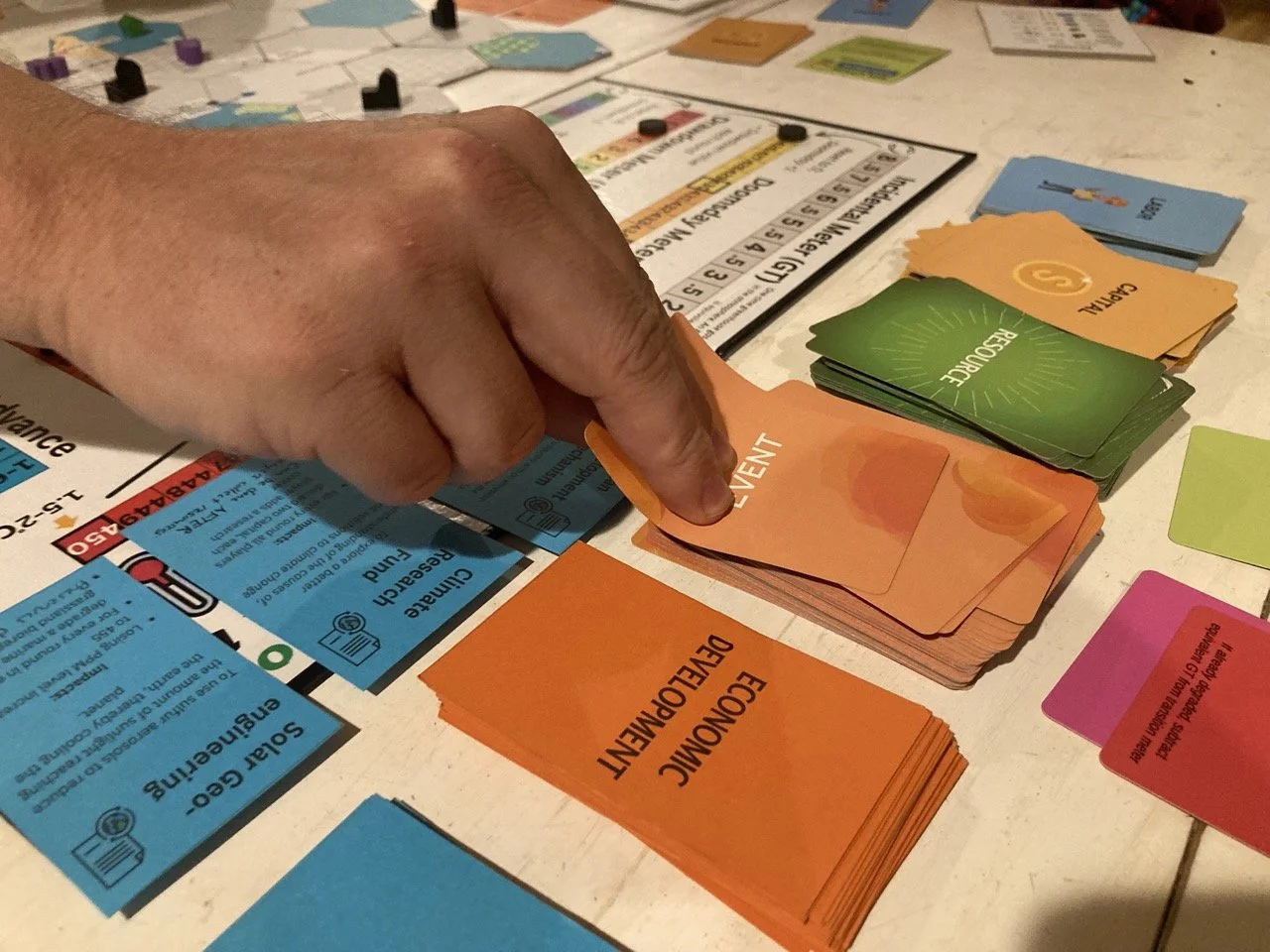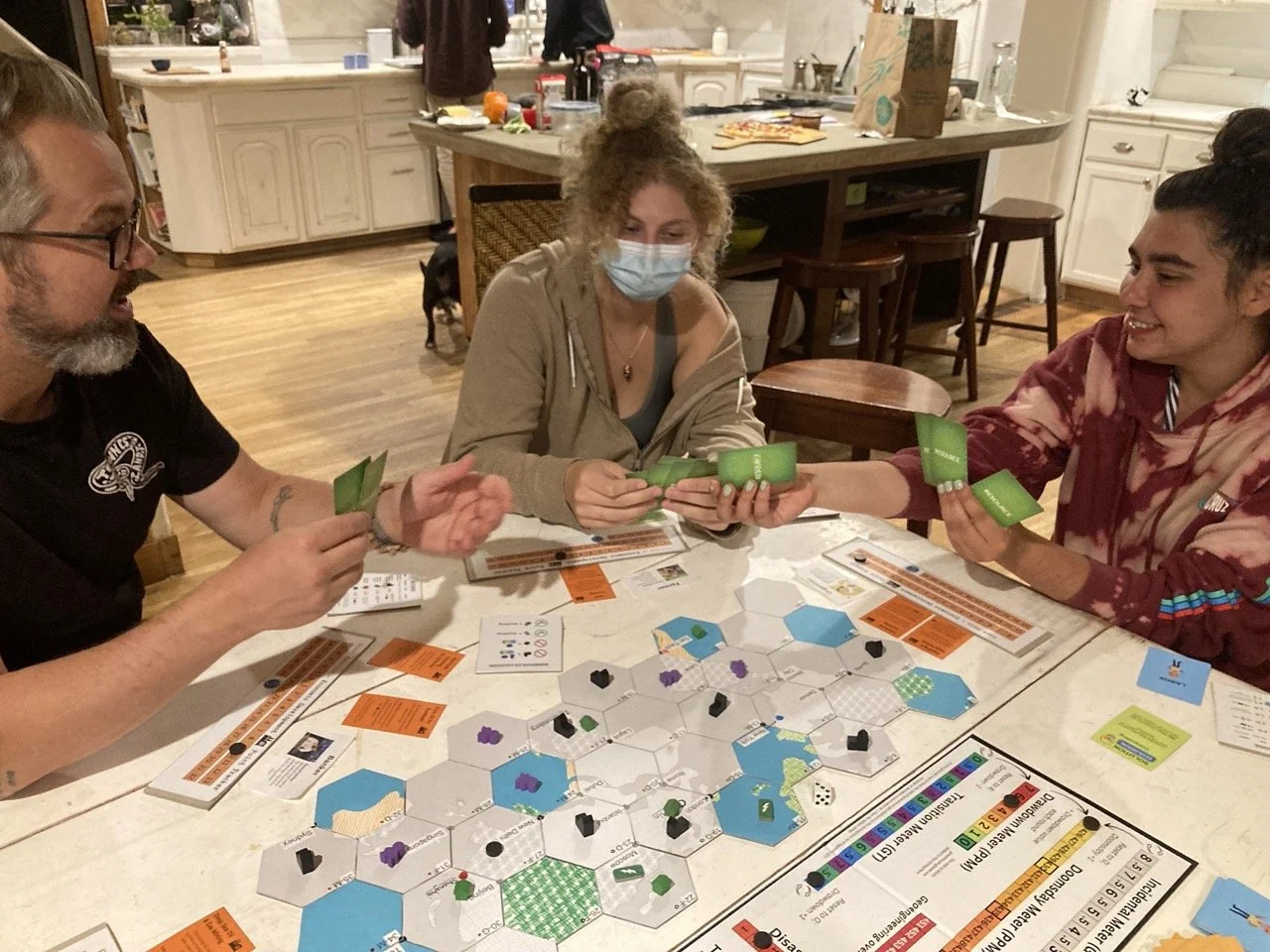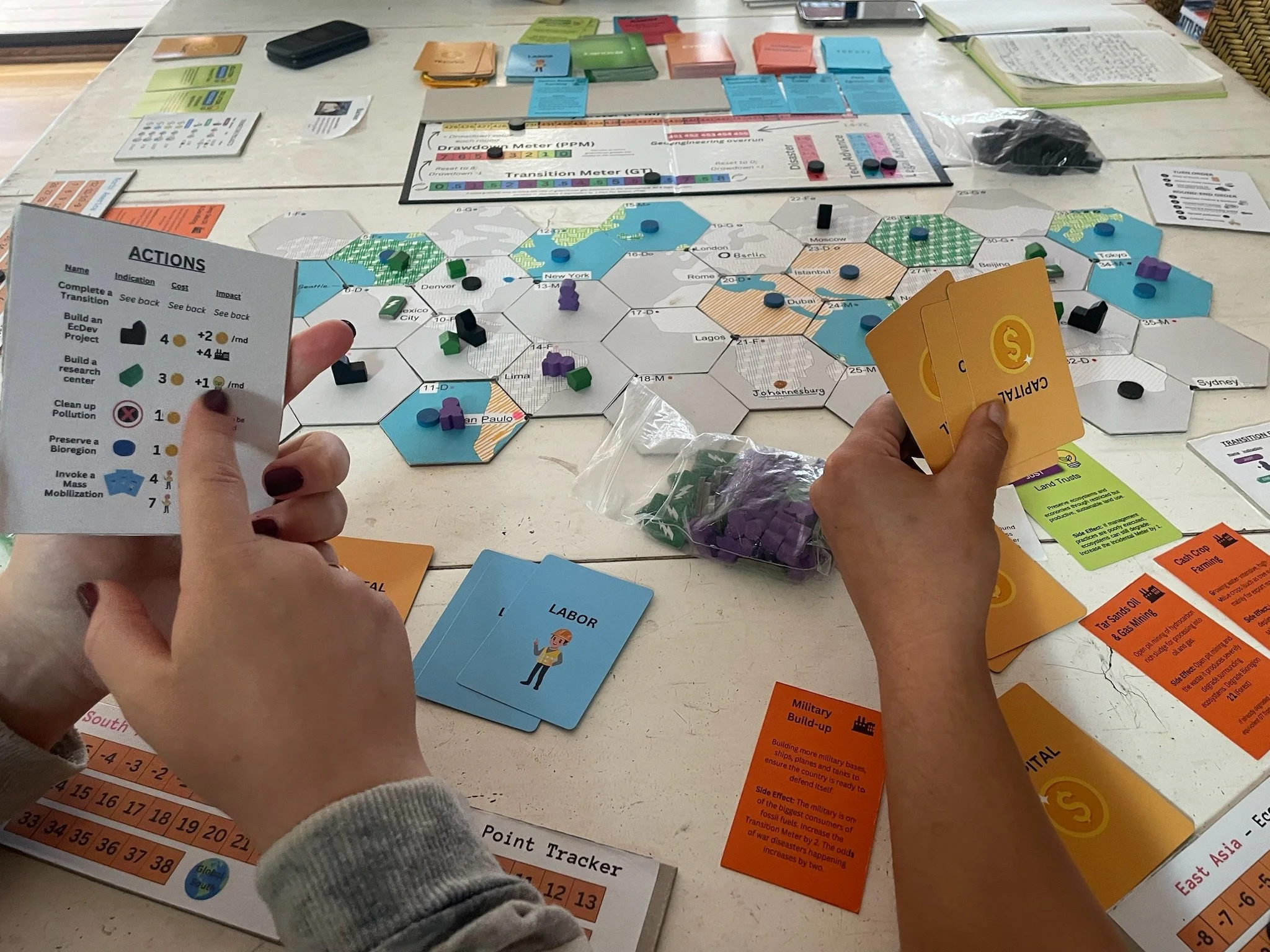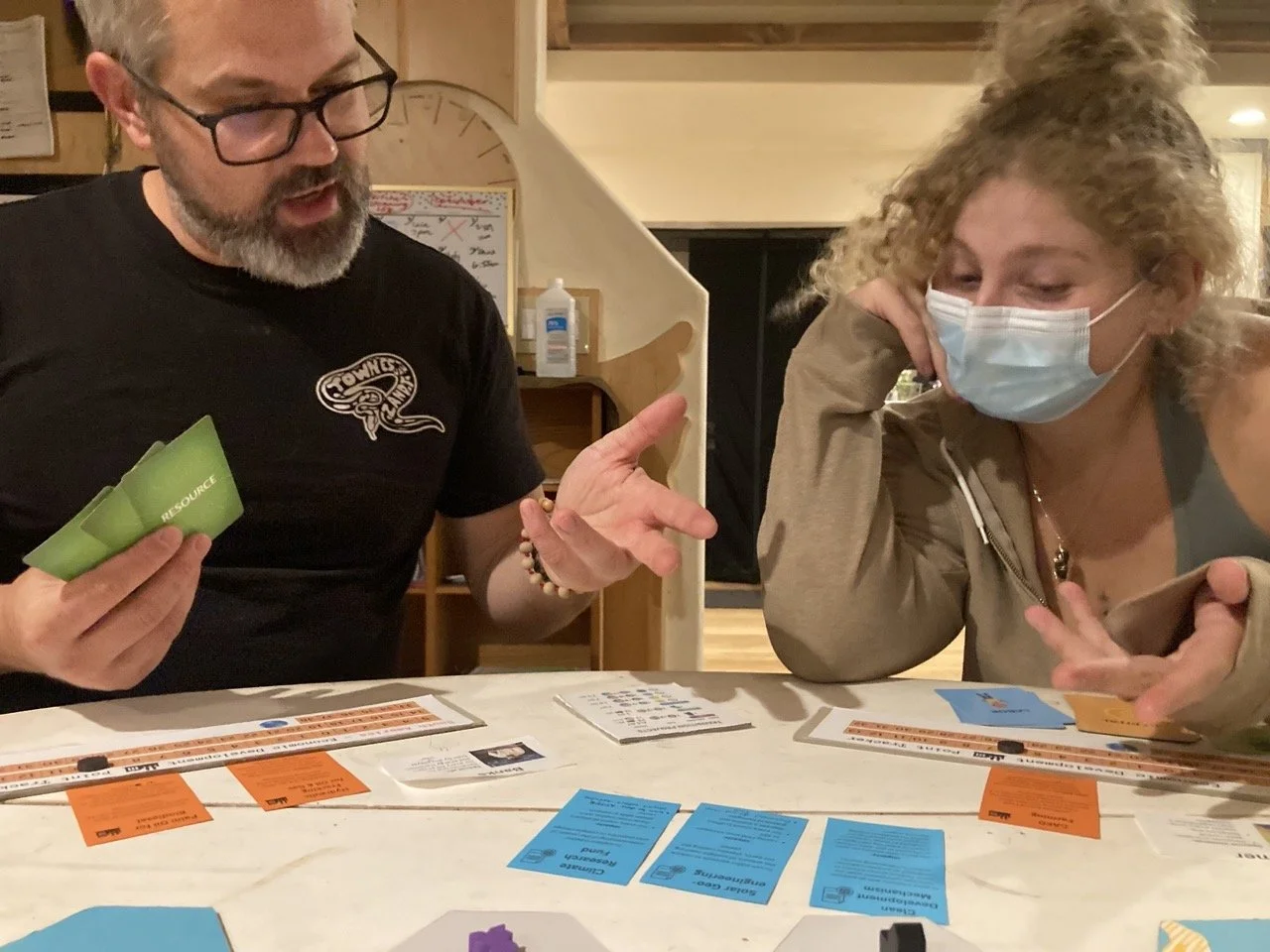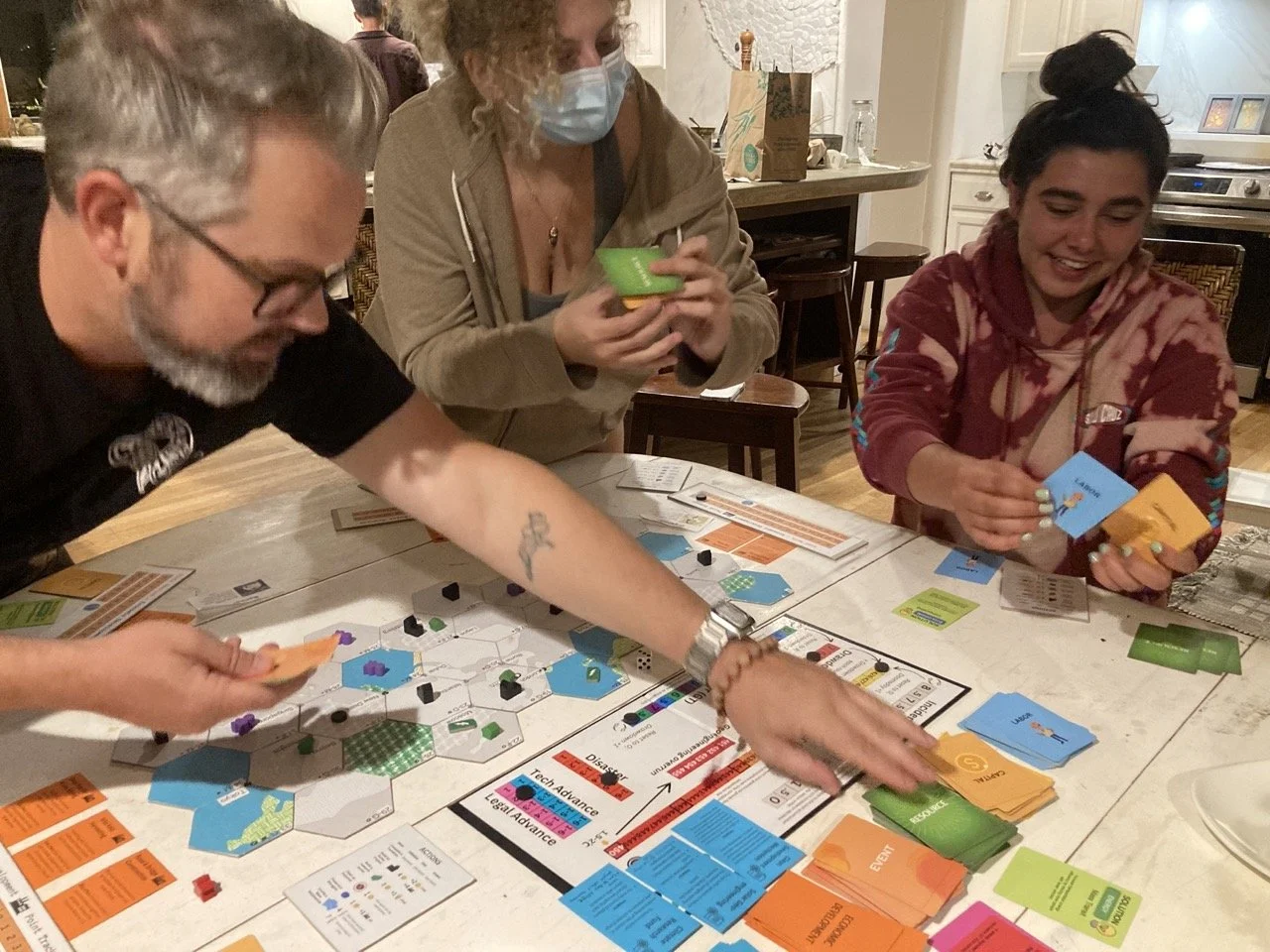REGENERATION:
A Semi-Cooperative Game About Climate Geopolitics
You are a group of world leaders tasked with saving the world from converging climate, biodiversity and economic crises by advancing three transition projects (Ecological, Energy and Just), while also growing your own economy faster than your rivals. However, there is another path: pursue the Just transition in EVERY bioregion and secure an equally abundant economic future for all. Which will you choose? And more importantly, which will your rivals choose?
The main board of the game consists of 35 hexagonal tiles that represent different bioregions. All the action of the game takes place in these bioregions, while greenhouse gas accumulation (which determines when the game ends) is tracked on a “meter board.” Players earn individual economic development points based on projects completed in their territory (group of seven bioregions).

How to play:
Turn phase I: draw an event card.
Then roll a single die to determine whether or not the event occurs. As the game progresses, events will be more likely to happen based on milestones met: greenhouse gas increases for disasters and research centers built for technological and legal advances.
Turn phase II: trade or share resources.
Plan the next phase of your turn (action phase) and determine what resources you might need to acquire from fellow players. If your actions will benefit the global project to reverse climate change, they might just give them to you. If your intentions are selfish, you might have to bargain for them. All players start with some resources based on pre-completed projects in their territory.
Turn phase III: actions.
Players use their resources to carry out as many actions as they can. Actions can give players economic development points (but often increase greenhouse gasses), give them more resources, or reduce greenhouse gasses. Sometimes they do more than one of these things. Oh the choices!
Round end phase I: Conference of the Parties (COP)
After all players have taken their turns, they have five minutes to negotiate treaties. Three treaty cards are presented, and only one can be chosen per round. On top of that, ALL players have to agree for the treaty to pass. Treaties typically force the cancelation of economic development projects (which takes away individual players’ points) or change the rules of the game.
Players implement any treaties passed, move the greenhouse gas trackers, spread pollution and collect resources cards for the next round (based on the projects they have completed).
Round end phase II: reset.
The game ends when:
Players can collectively win the game by staying inside the planetary “Donut” (see Donut Economics). This means achieving all three of the global objectives by the end of a round, AND each player having a Just transition on EVERY bioregion in their bloc. If every bioregion in play is NOT Just transitioned, the player with the most EcDev points wins.
Players collectively lose the game if, at the end of a round, A) GHG levels go off the top of the meter B) toxicity levels go off the top of the meter, C) all Bioregions on the board are degraded, or D) Round 6 ends and GHG levels have not yet gone below zero.
